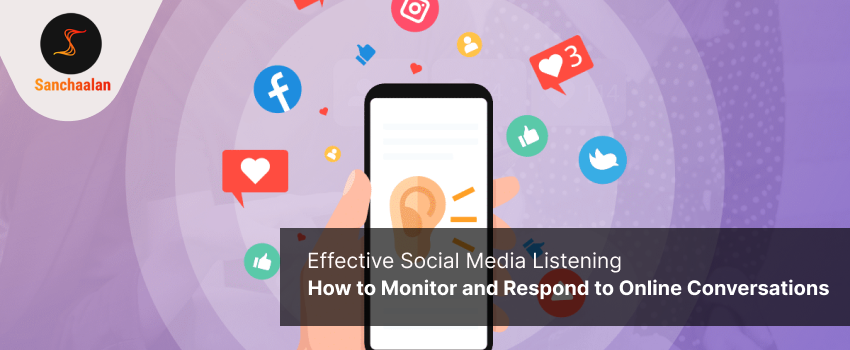
Effective Social Media Listening: How to Monitor and Respond to Online Conversations

Introduction
In today’s digital landscape, social media has become a powerful platform for communication and engagement. To succeed in the social media realm, businesses must not only create compelling content but also actively listen and respond to their audience. This article explores the concept of social media listening and provides insights into how businesses can effectively monitor and respond to online conversations to enhance their brand reputation and engage with their audience more effectively.
Understanding Social Media Listening:
Social media listening refers to the process of monitoring and analyzing conversations happening on social media platforms related to your brand, industry, or relevant topics. It involves tracking mentions, comments, and discussions about your business or industry to gain valuable insights into customer sentiment, preferences, and trends. By actively listening to online conversations, businesses can uncover valuable opportunities, identify customer pain points, and tailor their strategies to better serve their audience.
Why Social Media Listening Matters: Social media listening is essential for several reasons:
Customer Insights: It provides businesses with real-time insights into customer opinions, preferences, and sentiments. By understanding their audience better, businesses can develop more targeted marketing strategies and deliver content that resonates with their customers.
Brand Reputation Management: Social media listening allows businesses to monitor their brand’s online reputation. By promptly addressing customer feedback, complaints, or issues, businesses can protect their brand image and maintain a positive reputation.
Competitive Advantage: By monitoring online conversations about competitors, businesses can gain competitive intelligence and identify gaps or opportunities in the market. This information can inform product development, marketing campaigns, and overall business strategies.
Customer Engagement: Social media listening enables businesses to engage in real-time conversations with their audience. By actively responding to comments, questions, and mentions, businesses can foster stronger relationships, build brand loyalty, and improve customer satisfaction.
Effective Strategies for Social Media Listening:
Choose the Right Tools: Utilize social media listening tools, such as Mention, Hootsuite, or Brandwatch, to monitor mentions, hashtags, and relevant keywords across multiple platforms. These tools provide real-time alerts and comprehensive analytics to help you stay informed.
Define Monitoring Goals: Set specific goals for your social media listening efforts. Determine what you want to achieve, whether it’s tracking brand mentions, monitoring industry trends, or identifying customer pain points. Clear goals will guide your monitoring strategy.
Monitor Relevant Keywords and Hashtags: Identify keywords and hashtags related to your brand, industry, products, or services. Monitor these keywords to track conversations that are relevant to your business and gain insights into what people are saying about you.
Engage in Real-Time: Actively respond to mentions, comments, and direct messages. Engage in conversations, answer questions, address concerns, and thank customers for their feedback. Show that you value their opinions and are committed to providing excellent customer service.
Track Competitors: Monitor conversations about your competitors to gain insights into their strategies, customer perceptions, and market trends. Use this information to identify areas where you can differentiate yourself and create more impactful marketing campaigns.
Analyze and Adjust: Regularly analyze the data and insights gathered from social media listening. Look for patterns, trends, and opportunities for improvement. Adjust your marketing strategies, content, or customer service approaches based on the insights gained.
Back